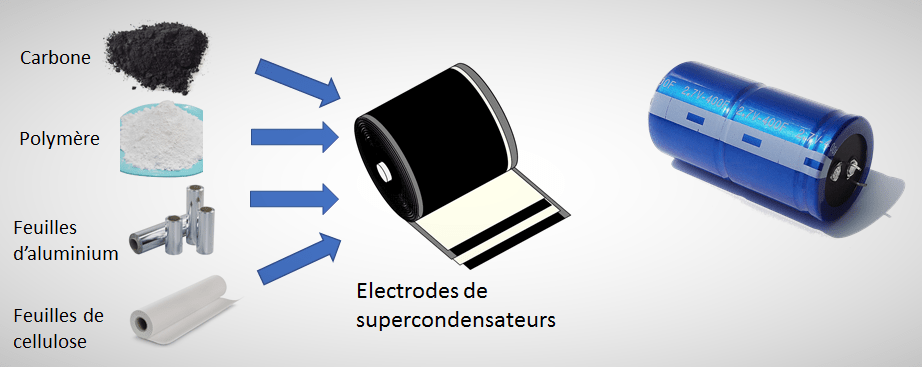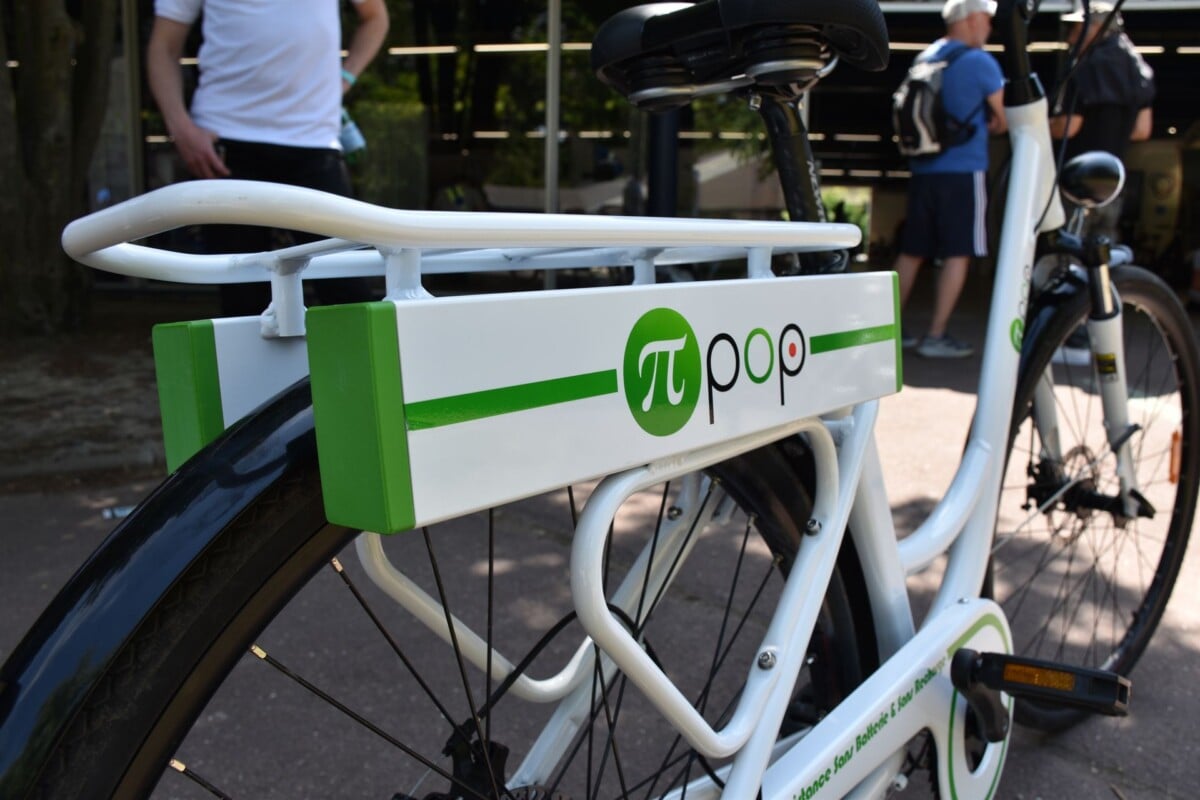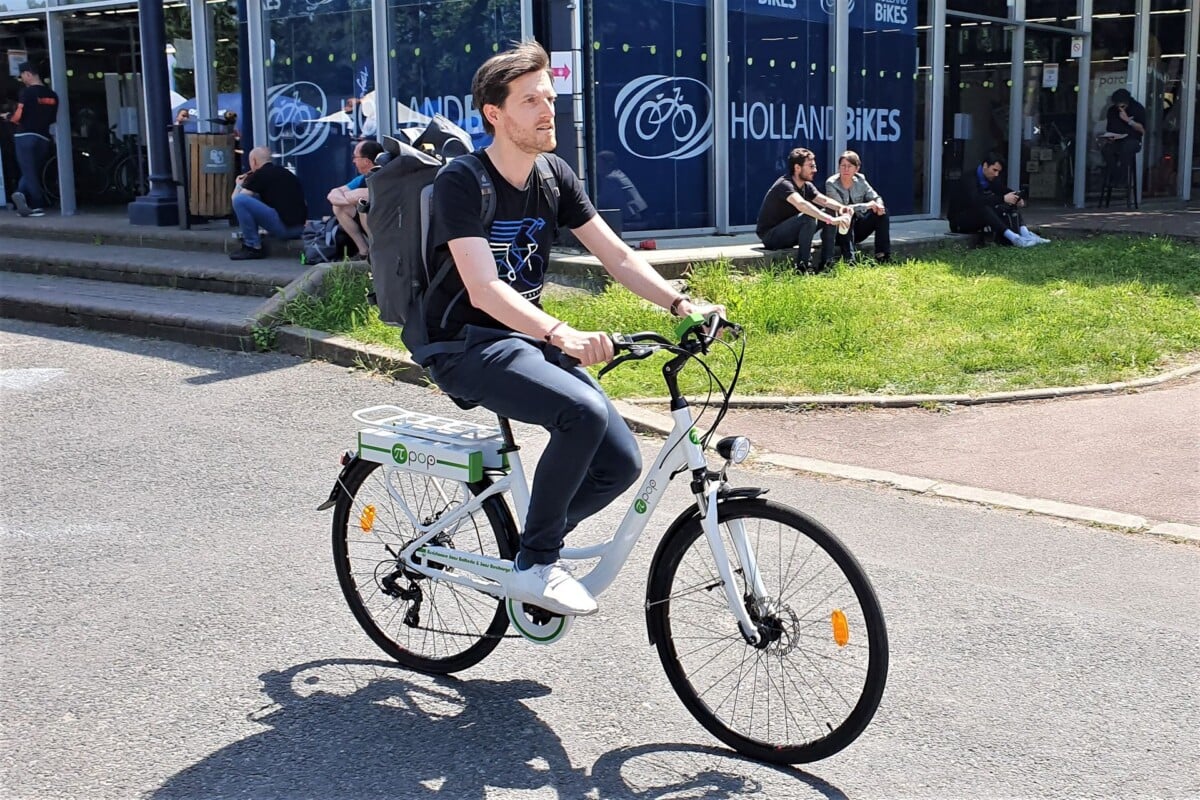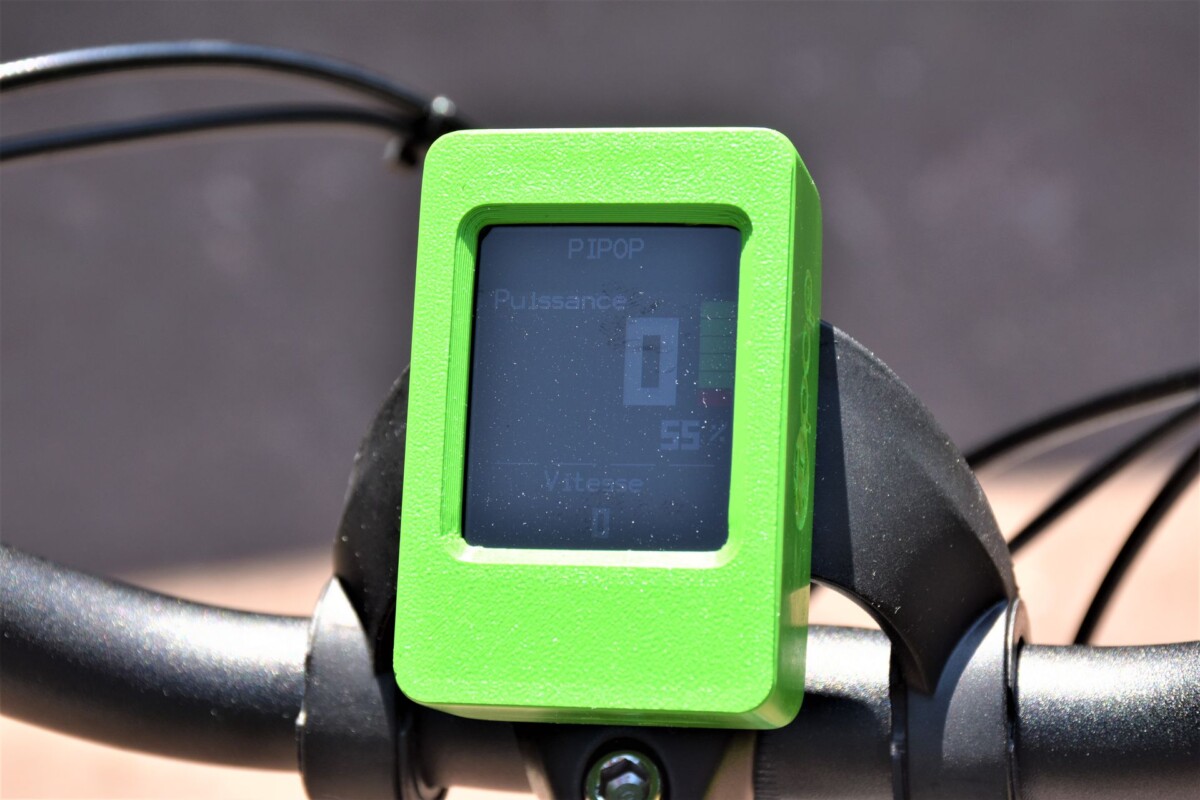Born from the brilliant idea of a French brand, the Pi-Pop is an electric bicycle (VAE) replacing lithium-ion batteries with supercapacitors that recharge themselves while riding.
Although recent in the history of cycling, pedelecs (electrically assisted bicycles) already seem to be a pillar of almost immutable technology. Because these machines use lithium-ion batteries, an invention barely 30 years old, but already everywhere. Die-hard resistance fighters have thought about another solution: Pi-Pop.
Supercapacitors, what is this thing?
This electric bike comes from Olivet, south of the Orleans area. And yes, a very French invention! It is the initiative of the engineer Adrien Lelièvre who created the U-feel, which then became Pi-Pop, today in its 3rd generation. It removes a brake – not THE brakes – being the hours-long recharge. For this, the Pi-Pop ignores lithium-ion batteries. Instead, it incorporates supercapacitors, located at the rear, at the level of the luggage rack.
These two blocks are made of carbon, aluminum, polymer type plastic and cellulose. That’s all, no lithium, nickel, manganese or cobalt, these critical materials that make up our current batteries.

Functioning a bit like lithium-ion, supercapacitor batteries are sheets rolled into a cylinder with anode and cathode (+ and -), but having the advantage of storing and restoring electricity much more quickly. The storage capacity, however, is much lower, so there is no talk of Wh or Ah on this bike.
Stop charging, really?
Because the interest of the electric bike with super-capacitors is not having to stop to recharge. There’s not even a plug. This happens at the handlebars, with the Pi-pop recovering energy while pedaling, coasting and even braking. The brand has optimized the performance and the brake handles, so that the braking is done at least via the discs in order to be able to restore the energy in the batteries. This is called regenerative braking.
To understand how effective it is, Toyota used it for several years on its cars at the 24 Hours of Le Mans, in order to draw the enormous energy “lost” during braking and reuse it from the following meters in acceleration. Similarly, Lamborghini installed this system on its first Sian hybrid road car in 2019.

Another advantage according to Adrien Lelièvre, the lifespan of supercapacitors is 10 to 15 years, without a big loss of charge-discharge capacity. Its recycling is also easy, because without dangerous materials or pollutants.
We rode with the Pi-pop, the supercapacitor bike
And to understand, we took this Pi-Pop electric bike in hand, during the Vélo in Paris festival. Paradigm change, we do not have to worry about the battery level at startup. 5%? No problem, it charges while driving. On our few hundred meters, we rolled head in the central screen, which indicates the phases of recharging (red) and discharge (green).

The electric assistance works like a classic VAE, sending in a motor 45 Nm in correlation to the pedaling, via a Shimano derailleur. No mode or levels of assistance, it is managed according to the difference in altitude: weak on the flat, zero downhill and strong uphill. However, you have to reach a certain speed or pedal hard to be able to recharge, at least on the flat.
The Pi-Pop likes the descents, where it recovers the most watts. We thus lost a small % on our journey, despite having sought the limits of the assistance. And no violent engine braking, you barely feel the loss of speed when recharging, unlike a conventional kinetic energy recovery system.

For the rest, the sensations are similar to a passive position electric city bike, high curved handlebars, equipped with thin 28-inch wheels and Tektro brakes. Even with front suspension, the whole displays a reasonable weight under 22 kg.
What price for the electric bike without Pi-Pop battery?
Pip-pop is not a concept, as it has been produced since last year, on site in Olivet (Loiret) and sold directly. Very small with around 150 units on the clock, this French manufacturer is aiming for a few hundred units a year, says its director. But are supercapacitors expensive? No, because the bike limits its price to 2,450 euros. It’s more than a Voltaire Legendre or a Vanmoof S4, but more charging to manage and less environmental impact of the electrical system

Source: Matthieu Lauraux for Frandroid

Source: Matthieu Lauraux for Frandroid

Source: Matthieu Lauraux for Frandroid

Source: Matthieu Lauraux for Frandroid

Source: Matthieu Lauraux for Frandroid
Why has no one taken up this concept? We do not know, but at Frandroidwe hope to ride more with this curious bike – especially with different elevations – to understand the qualities and possible limits of this technology.
Do you use Google News (News in France)? You can follow your favorite media. Follow Frandroid on Google News (and Numerama).
